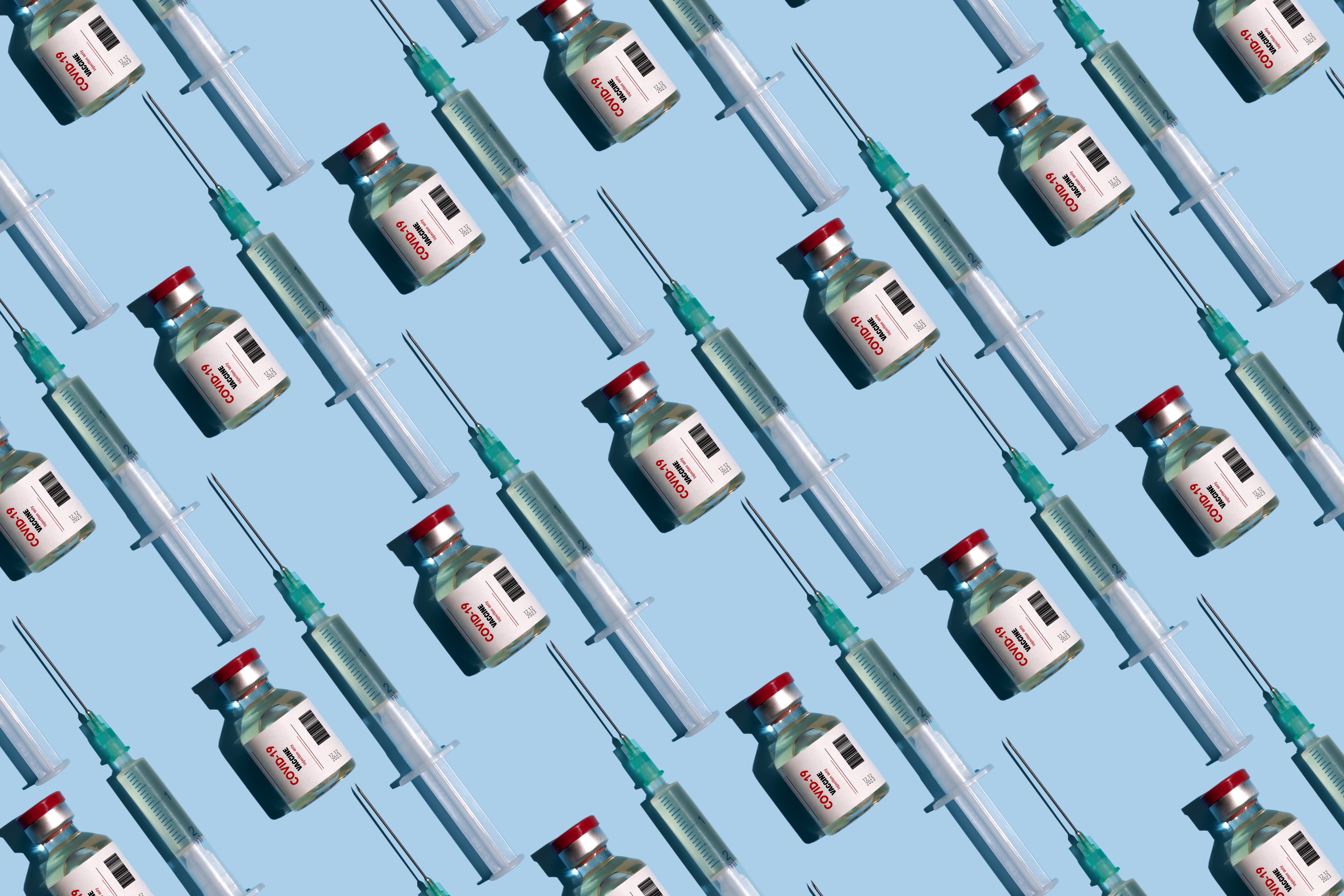
Celebrity news, beauty, fashion advice, and fascinating features, delivered straight to your inbox!
You are now subscribed
Your newsletter sign-up was successful
New research has concluded that the vaccine appears to become less effective as time goes on
A new study has found that Covid-19 vaccines decrease in efficacy after just six months.
It's now thought that they could offer as little as 50% protection come winter for those who were jabbed nearer the start of the year.
Research was conducted by several scientists using the ZOE Covid app, which has been been tracking data for the last seventeen months since the first UK outbreak.
Its most recent findings indicate that specifically the Pfizer and AstraZeneca jabs become less effective as time goes on.
Stats show Pfizer sits at 88% effective at preventing the virus a month after both jabs, but that, five to six months down the line, efficacy fell to 74%.
This would mean that the amount the vaccine can actually protect you has fallen by 14% in just four months.
Celebrity news, beauty, fashion advice, and fascinating features, delivered straight to your inbox!
Similarly, AstraZeneca is 77% effective after a month, and 67% affective after four to five months, or so the stats suggest.
Professor Tim Spector, who is the lead scientist fronting the app, said that in a worst-case situation, the elderly will be exposed to efficiacy of less than 50%.
This wouldn't bode well for the predicted fourth wave.
From December 2020, the UK government started rolling out vaccines, starting with the elderly and vulnerable. 90-year-old Margaret Keenan was the first to receive the jab here in the UK on 8th December.
This does, however, mean that those with less efficient jabs now are also the elderly and vulnerable.
Pair that with the fact that that Coronavirus spreads more during the winter months and you paint a worrying picture.

This comes the same month it's discovered that the Delta variant spreads between those who have been double jabbed just as quickly as those who haven't been.
Professor Spector said: "If high levels of infection in the UK, driven by loosened social restrictions and a highly transmissible variant, this scenario could mean increased hospitalisations and deaths."
"We urgently need to make plans for vaccine boosters, and based on vaccine resources, decide if a strategy to vaccinate children is sensible if our aim is to reduce deaths and hospital admissions."
"Waning protection is to be expected and is not a reason to not get vaccinated."
"Vaccines still provide high levels of protection for the majority of the population, especially against the Delta variant, so we still need as many people as possible to get fully vaccinated."
More as we have it.

Ally is Marie Claire UK's Senior Health and Sustainability Editor, a well-regarded wellness expert, ten-time marathoner, and Boston Qualifying runner.
Utilising her impressive skillset and exceptional quality of writing, she pens investigative, review and first-person pieces that consistently demonstrate flair and originality.
As well as writing, Ally manages a team of freelancers, oversees all commissioning and strategy for her pillars, and spearheads the brand's annual Women in Sport covers, interviewing and shooting the likes of Mary Earps, Millie Bright, and Ilona Maher. Shortlisted for three BSMEs and winning one in 2022, Ally lives and breathes her verticals: her eye for a story and connections within the wellness sphere are unrivalled. Follow Ally on Instagram for more.
